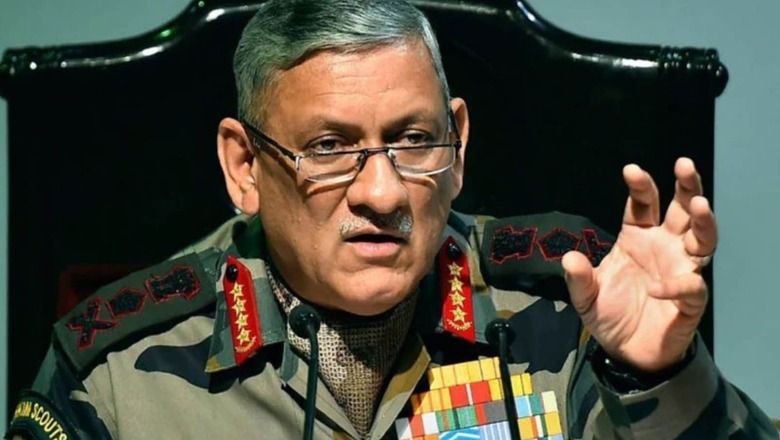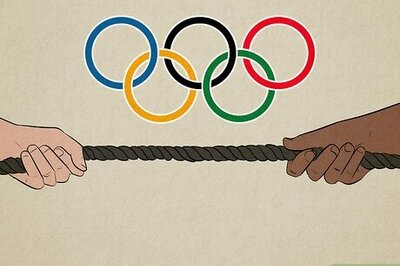
views
The territorial ambitions of China and Pakistan require the Indian armed forces to remain alert and deployed along disputed borders and coastal areas round the year, Chief of Defence Staff (CDS) Bipin Rawat said on Sunday. The CDS stated this while delivering the Sardar Patel Memorial Lecture at All India Radio.
“The quintessential visionary that Sardar Patel was, he had assertively voiced the need of an independent Tibet as a buffer state between India and China, as can be found in his correspondence with the then Prime Minister Pandit Jawaharlal Nehru,” he said. Rawat said history is witness to the fact that whenever a country neglects its armed forces, the external powers are quick to exploit it.
In the 1950s, India overlooked this important lesson of history and allowed the security apparatus to drift and the Chinese shook the country up in 1962, Rawat said. “We had to relearn this lesson through an ignominious experience. Post-1962, we have had several skirmishes against the Chinese — at Nathu La in Sikkim in 1967, at Wangdung in 1986, at Doklam in 2017 and the recent skirmishes in the eastern Ladakh,” he noted.
The outcomes have made it clear that the Indian armed forces are alert and determined to defend national territory, he said. This, he said, has helped the Chinese and our leaders to pursue agreements for maintaining peace and tranquility along the Line of Actual Control (LAC) and several other confidence-building measures to improve relations.
“Territorial ambitions of China and Pakistan require India’s armed forces to remain alert and deployed along disputed borders and also along the coastal regions round the year,” he asserted. The current border standoff between the Indian and Chinese militaries erupted in May last year following a violent clash in the Pangong lake areas of eastern Ladakh and both sides gradually enhanced their deployment by rushing in tens of thousands of soldiers as well as heavy weaponry.
As a result of a series of military and diplomatic talks, India and China completed the disengagement process in the Gogra area in August and in the north and south banks of the Pangong lake in February. Each side currently has around 50,000 to 60,000 troops along the LAC in the sensitive sector.
Rawat, in his speech, also recalled the role of the Indian armed forces in controlling the post-partition violence in India. “No one had fathomed that the scale of mayhem due to the communal frenzy that was unleashed due to the partition of our nation.
“Large scale violence between people who once lived as one community resulted in the loss of thousands of innocent lives in 1947,” he said. The police force was limited in numbers, not fully trained or equipped, and was suffering from the trauma of communal fighting, he mentioned.
“The communal frenzy of that time was beyond the control of the police. The armed forces were then called in to control the furious rioting and enforce civil order,” he added.
Read all the Latest News , Breaking News and IPL 2022 Live Updates here.


















Comments
0 comment